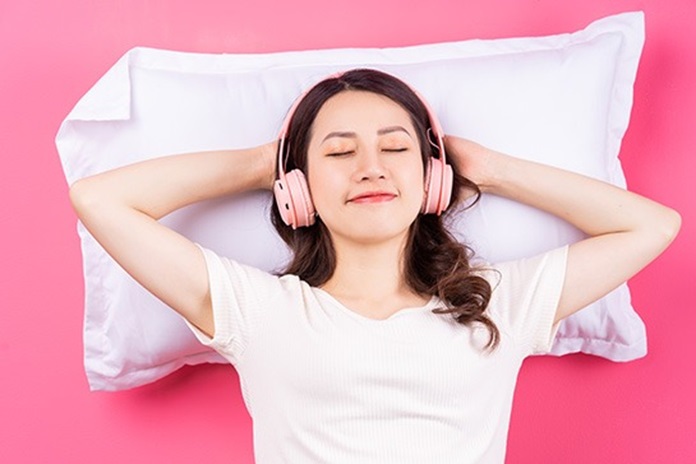Music has the profound ability to evoke emotions and memories, and even influence our behaviors and physiological states. Musice’s impact is undeniable, from the lullabies that soothe newborns to the anthems that energize athletes. Music can entertain and inspire, but it also has a therapeutic power that can significantly affect our well-being, particularly about sleep. Music can help you feel relaxed and at ease which contributes to quality sleep. Some observations have shown that soothing melodies can help children of all ages, from premature infants to elementary school children to sleep better.
In this article, we’ll explore the complex interplay of music and sleep, uncovering how melodies can improve the caliber of our sleep and, consequently, enrich our overall well-being.
The connection between music and sleep
Listening to music before bed may help to a quicker onset of sleep, fewer awakenings throughout the night, and a general improvement in sleep quality. Slow-tempo music with soft melodies helps to lower stress and anxiety levels, slow down our heart rate, and initiate a relaxation response in the body, setting the perfect stage for a restful night.
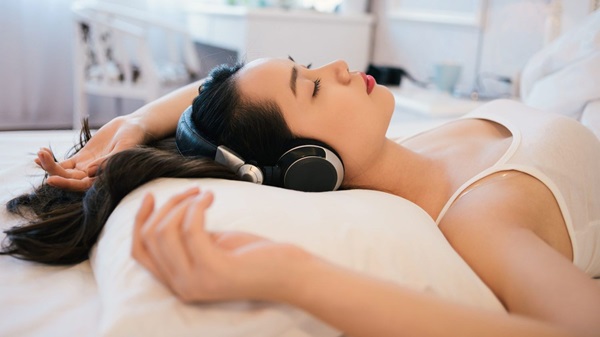
According to one research, adults experienced good quality sleep after listening to 45 minutes of music before going to sleep. Likewise, soothing music also helps to fall asleep faster. Music prepares the body and mind for restful sleep by triggering the relaxation response which helps to ease the transition from wakefulness to slumber.
What impact does music have on the quality of sleep?
Music acts as a distraction as it pulls our thoughts away from the day’s stresses and towards a more relaxed state of mind. Likewise, it also helps to trigger the release of sleep-friendly hormones like serotonin and reduce the levels of cortisol, the stress hormone.
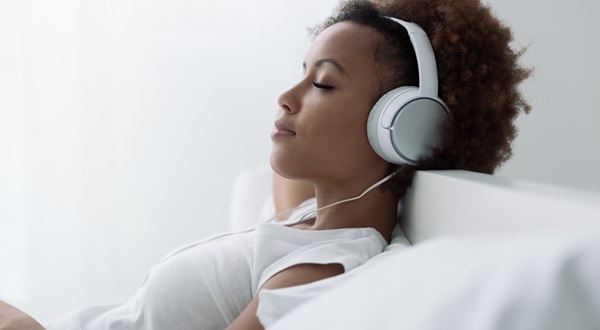
In addition, the rhythm and tempo of music are capable of harmonizing with our internal body rhythms. This synchronization can help to slow down our breathing and heart rate, which in turn can prepare us for sleep. The overall impact of music on our body and mind highlights its potential as a potent natural sleep aid.
Also read, Sleep Tight: The Role of Food in Managing Insomnia and Anxiety
What is the science behind music and sleep?
To comprehend the scientific basis of music’s impact on sleep, it’s crucial to examine the research. Several studies have revealed how music can modify brainwave patterns, inducing the slower brainwave speeds associated with sleep onset.
Music with a slow tempo, around 60 beats per minute, has been found to have a positive impact on sleep. This is because it encourages the brain to synchronize with the rhythm, which results in the alpha and theta brainwave states.
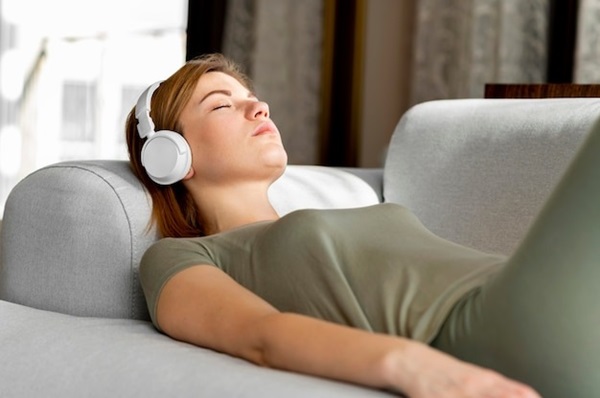
These states are indicative of relaxation and the first stages of sleep, respectively. Entrainment is the term used to describe this phenomenon, which shows how music can be a great tool for achieving a deeper and more rejuvenating sleep.
Does all types of music help with sleep?
Some types of music are better for promoting sleep than others. While personal taste is important, certain genres and compositions are more helpful for relaxation and sleep. Classical music is often recommended for its sleep-promoting benefits due to its instrumental nature, lack of lyrics, and slow, steady tempos.
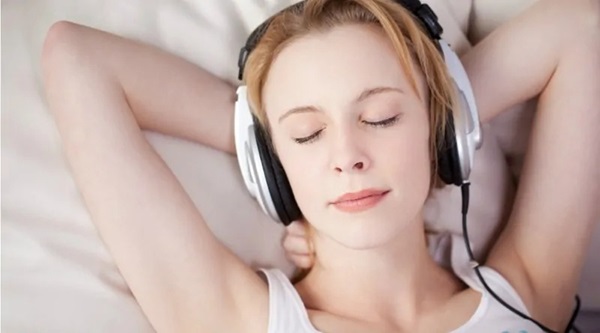
Moreover, ambient and nature-based sounds can make a calming environment conducive to sleep. Jazz and soft acoustic music can also be effective as they produce a slow, smooth rhythm. The key is to choose music that you find soothing, which relaxes rather than stimulates the mind.
Music therapy for sleep disorders
Music therapy can help those struggling with sleep disorders like insomnia to improve sleep quality.
Music therapists use tailored music experiences to address individual sleep issues, employing techniques that range from guided relaxation with music to the creation of personalized sleep playlists.

Various studies have supported the effectiveness of music therapy in treating sleep disorders. The results have shown significant improvements in sleep latency, duration, and quality. Music therapy is a complementary treatment that provides a holistic and accessible approach to enhancing sleep health.
Tips for using music to improve sleep
Incorporating music into your nightly routine can be a simple yet effective way to enhance sleep quality. Here are some tips to maximize the benefits:
- Start listening to your sleep playlist about 30 to 45 minutes before bed to unwind and signal to your body that it’s time to sleep.
- Use a sleep timer to ensure the music doesn’t play all night, potentially disrupting deep sleep phases.
- Experiment with different types of music and sounds to discover what works best for you, noting any improvements in how quickly you fall asleep or the quality of your sleep.
- Invest in a high-quality sound system or sleep headphones that are comfortable and create an optimal listening experience without disturbing others.
Common myths about music and sleep
Though music has clear benefits for sleep, several myths also persist. There is a myth that all types of music can help sleep. Certain types and tempos of music are more effective for sleep, however, any music cannot improve sleep.
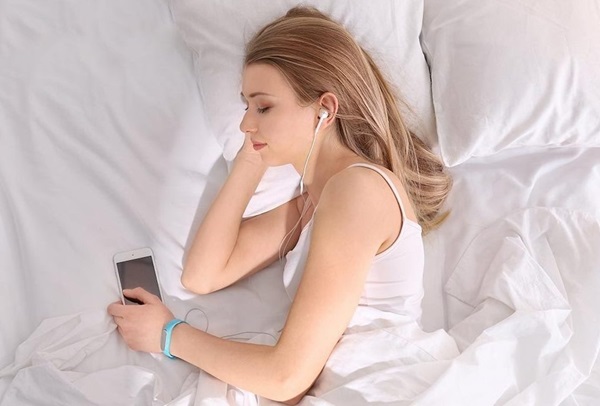
Similarly, another common misconception is that listening to music through headphones or earbuds all night is beneficial. It can be effective at first but continuing to use headphones for a long time can be uncomfortable and potentially harmful to the ears. It’s also essential to understand that while music can significantly aid sleep, it’s not a cure-all for serious sleep disorders, which may require medical intervention.
Frequently Asked Question
Can any type of music help me sleep better?
It depends on individual choice. Music with a slow tempo, smooth melodies, and gentle dynamics tends to be most effective for promoting sleep. When it comes to choosing relaxing music, individual preferences are crucial.
How long should I listen to music before bed?
Before bedtime, it’s recommended to listen to soothing music for at least 30 minutes to allow your body and mind to unwind and prepare for sleep. Similarly, you can extend or reduce the duration based on your preferences.
You may also like to read, Wake Up Refreshed: How Sleeps Eight’s Smart Beds Enhance Your Morning Routine
